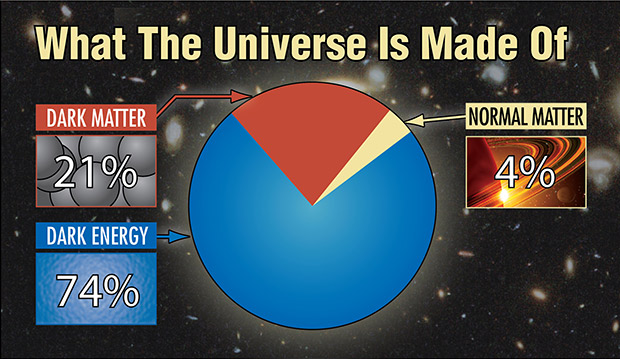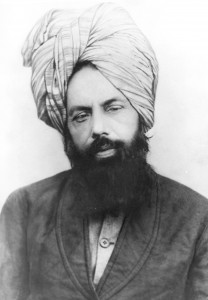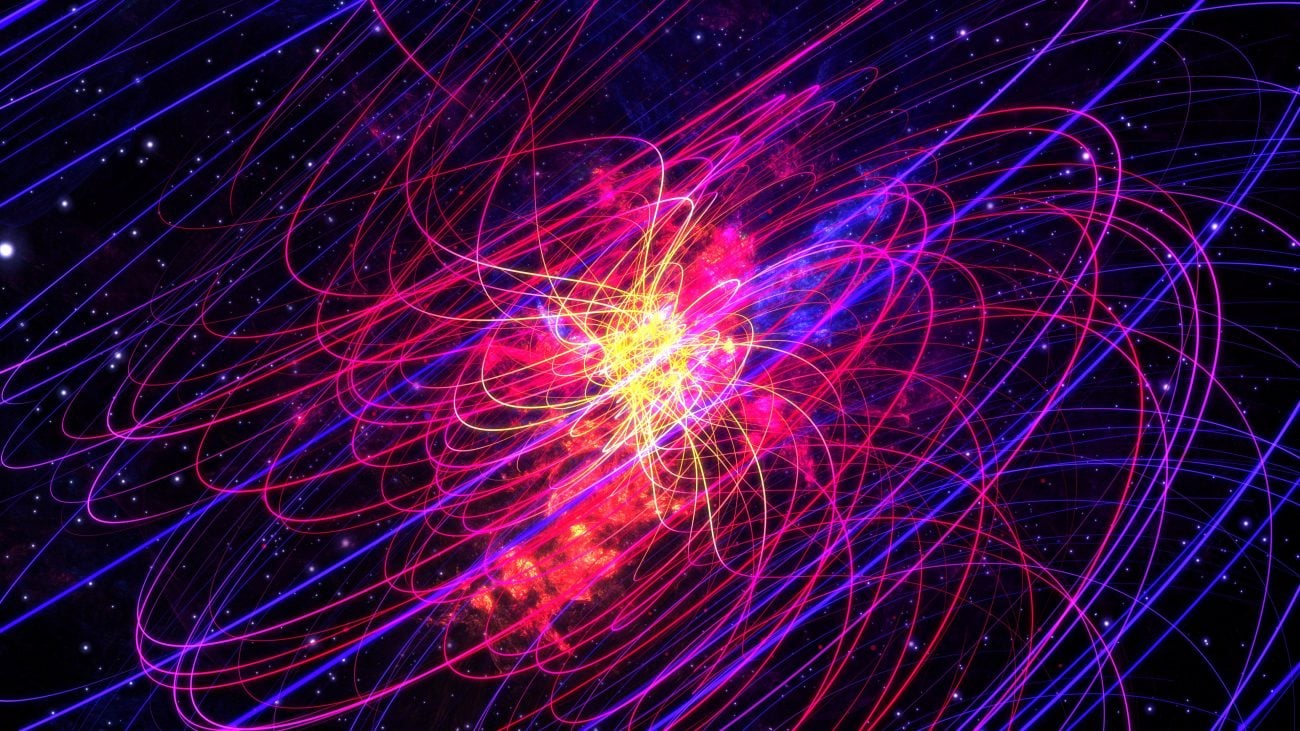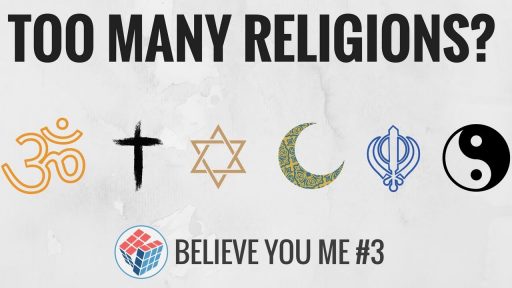Preamble
Do you know what the most beautiful conversation in human history was? It was between the Prophet Muhammad and the man who would later become the first caliph of the Muslims: Abu Bakr the Truthful. He was a wealthy and respected merchant who had been travelling outside his home-town of Mecca, deep in the Arabian desert. On his return, the chiefs of his city came to him laughing. They said his friend, Muhammad, had claimed to have received messages from God brought by angels. Abu Bakr left the Arab chieftains. He rushed to the Prophet and asked him—have you made this claim? The Prophet would not give him a direct answer. He wanted to explain his claim and the circumstances surrounding it. But Abu Bakr would have none of it. Have you made this claim? Again the Holy Prophet would not give him a straight answer. Once more Abu Bakr asked—have you made this claim? Finally the Prophet relented, and said yes, I have made such a claim. At this Abu Bakr declared, I bear witness that you are a messenger of God. He said that had he heard any argument, it would have detracted from the quality of his faith.
Scientism
Faith. Today it is a dirty word. Its true meaning has become obscure, its connotations ridiculed by an intellectual elite that believes that the scientific method is the key to humanity’s salvation. Their position perhaps has some justification. The tremendous material progress that the scientific revolution has brought in recent centuries is plain for all to see. Our developments in medicine and technology are the result of this scientific inquiry, where we collect empirical data and test our hypotheses with experimentation. Its fruits have radically changed the way we live. But today science is being used not just as a tool to improve our quality of life, but as a weapon aimed directly at the heart of religion. The leading atheists of our time, such as Richard Dawkins and Sam Harris, tend to be established scientists. They and their legion of devotees believe that mankind must yield the power of modern science to liberate us from the shackles of ancient superstitions. Indeed, their missionary zeal has been noted to parallel religious fervour, with Science as their new god. As the prescient philosopher and mathematician David Berlinski commented:
“If nothing else, the attack on traditional religious thought marks the consolidation in our time of science as the single system of belief in which rational men and women might place their faith, and if not their faith, then certainly their devotion… And like any militant church, this one places a familiar demand before all others:
Thou shalt have no other gods before me.”
The followers of this philosophy, often known as ‘New Atheists,’ believe that it is fundamentally irrational to believe in a God whose existence is not proved by empirical evidence. They place the scientific method as the premier means by which we should discover the secrets of reality. For them, any truth not ratified by scientific consensus is no truth at all. Rather it is wishful thinking at best, and rank ignorance at worst.
The most common argument of the followers of this worldview, often dubbed ‘scientism,’ is that there is simply no evidence for God. By evidence, its proponents mean empirical evidence—data that acts as an objective representation of the physical reality around us. The existence of God is treated like any other hypothesis: and thus an equivalent standard of evidence is required of it. After all, New Atheists argue, if we are to spend our lives worshipping, loving, and fearing some being, His actual existence should be at least as well-established as our scientific theories of physics and chemistry. Subjective personal experiences will not do. What is needed is hard proof.

The Folly of New Atheism
At this, the modern theist is typically left on the back foot. No theist can point somewhere and declare ‘look, there’s God,’ nor can they write an equation which solves to ‘God.’ However, while the request for evidence is well-founded, the demand for the type of evidence they want is completely unreasonable. If New Atheists want empirical evidence—direct physical proof of God’s existence—then in their blind zeal to uphold the name of science, they have forgotten its essence: that the method of investigation must suit the object in question. If we use the wrong method of investigation we will inevitably get the wrong kind of evidence, and our efforts will be in vain. To observe the inner workings of cells, a telescope won’t do. To assess earthquake activity, a Geiger counter will fall short. Our approach must be tailored to the object in question.
God is no thing. He is not a physical object, nor is he a compendium of physical things. Rather, he is taken to be the Creator and Sustainer of all physical things. It is obvious that the Creator of the universe cannot physically be the universe, for the transcendent cannot be held within the immanent—that which is by its nature beyond matter, energy, space and time cannot be confined within them. For such a being, searching for physical, empirical evidence is entirely inappropriate, and bound to lead to frustration and despair.
The Limits of Empirical Evidence
In this respect, God is not alone. Mainstream scientific consensus itself unwittingly confirms that a lack of direct empirical evidence for something does not invalidate its existence. For instance, physicists now believe that about 95% of the universe is completely hidden to us. It cannot be physically detected by any of our most sensitive instruments. Everything that we can see, feel and detect is just 5% of the universe. The rest is dark matter and dark energy. Its existence has only been deduced from its effect on what we can see and feel.
The data gathered from the stars is one thing, but the insight gathered from introspection is another. We are conscious beings—consciousness is the essence of our identities. And yet, has any scientist ever isolated a thought, a feeling or a memory? The barest reflection will reveal that our conscious experience is of altogether a different nature to the electricity charted by brain scans, one not yet understood by the crude instruments of modern science.
Thus, be it dark matter and dark energy out there, or conscious reality in here, scientific thought accepts a whole host of significant things for which there is not a shred of direct empirical evidence. It seems that the more subtle something is, the more refined its substance, the less we can rely on our physical senses and empirical evidence to directly access it, and the more we must rely on measuring its effects. This furnishes us with valuable guidance in our search for God. God, if He exists, must be the most subtle of all things. He is the underlying reality of everything else, the rarefied essence of existence. If our best science cannot even detect 95% of the physical universe, does anyone really expect us to detect God?
The Holy Qur’an beautifully sums this up in one simple statement:
“Eyes cannot reach Him, but He reaches the eyes.
And He is the Most Subtle, the All-Aware.” (6:104)
Our physical senses cannot reach Him because He is the Most Subtle. However, unlike physical rarities like dark matter or dark energy, God is not dependent on our efforts to discover Him. We need not rely on merely speculative and inferential evidence to determine His Existence. Rather, the Qur’an declares that God is well-aware of our need to know Him directly. Thus, He reaches the eyes, that is, he reveals Himself through His own initiative in the most appropriate way for mankind.

Thunderbolt, Now
What is the appropriate way? Even if New Atheists concede that God’s nature is such that His ‘esssence’ should be beyond physical empirical verification, they could argue that God can still manifest himself much more obviously in the universe, i.e. by manipulating physical means. If he really is All-Powerful, then why doesn’t He reach us in such a way that would make it blindingly obvious He exists? For instance, every time an atheist affirms his disbelief, God could cause the heavens to reverberate with, “Dost Thou Doubt?!” Whenever an atheist mockingly asked for a thunderbolt to strike him down dead, God could duly acquiesce. If God can do it, atheists ask, then what’s stopping Him?
To answer this, atheists must contemplate the rationale behind the system of God that religion presents. For while it is true that religion teaches that God is All-Powerful, it also states He is All-Wise. He would only choose that method of delivery for His message which would suit his purpose in creation.
Were God to reveal himself in the manner which atheists demand, it would be contrary to his purpose. His purpose in creating us is not simply that we know he exists, but that we choose to know Him and thereby become deserving of a relationship. Were God’s existence as manifestly obvious as the sun or the moon, there would be no merit whatsoever in believing. Belief would become necessary for everyone, and we would have no chance to demonstrate our good trust in others, insight, and perseverance. The demonstration of these qualities earns God’s reward, and are only possible if the seeker of truth must work through a veil to reach the True Beloved.
“Are they waiting for anything but that Allah should come to them in the coverings of the clouds with angels, and the matter be decided? And to Allah do all things return.” (2:211)
Any Hypothesis But God
Unfortunately, pointing out the wisdom of God is something that many atheists will close their ears to. The reality is that too many have set their heart on not believing, and would brush away any further evidence for God as easily as they have brushed away the current evidence. Take the example given above: God announcing his existence through a voice reverberating around the heavens. One would imagine that atheists would surely not be able to doubt that? Sadly, they would. The following is from leading atheist Richard Dawkins:
Interviewer: What would it take for you to believe in God?
Dawkins: I used to say it would be very simple. It would be the Second Coming of Jesus or a great, big, deep, booming, bass voice saying “I am God.” But I was persuaded… that even if there was this booming voice in the Second Coming with clouds of glory, the probable explanation is that it is a hallucination or a conjuring trick by David Copperfield…
Interviewer: So what would persuade you?
Dawkins: Well, I’m starting to think nothing would, which, in a way, goes against the grain, because I’ve always paid lip service to the view that a scientist should change his mind when evidence is forthcoming.
Dawkins, in this stunning moment of intellectual shamelessness has typified the New Atheist mindset—they will not believe in God, because to them God cannot exist. Their emotional rejection of God blinds them to any consideration of the evidence. We see this already with the absurd denials of evident divine design in the fine-tuning of the universe, and the origin of life. The atheist scientific establishment have run away from the idea of conscious design towards absurd and unfalsifiable multiverse theories because, in the words of Mirza Tahir Ahmad, they are “atheists first, and scientists after.” They have an undying faith in ungrounded materialistic explanations while ignoring the obvious interpretation of the facts in front of them. The Qur’an refers to this mindset when it says:
“And even if We opened to them a door from heaven, and they began ascending through it, They would surely say, ‘Only our eyes are dazed; rather we are a bewitched people.’” (15:16)
Dawkins Admits to Intelligent Design by aliens… but never by God.
The Essence of the Scientific Method
Thus far we have explored how the nature of God precludes the existence of physical evidence for Him. We have also seen that it would be contrary to God’s purpose and wisdom to expect crude material manifestations of Him. This leaves us with one question—what kind of evidence should we look for?
One answer is to look for evidence of divine design in the universe around us. This has been the mainstay of theistic apologists in the modern age. They ably point out that the findings of modern science necessitate the existence of an immaterial, timeless, and conscious designer of the universe. These arguments are valid, and compelling. And yet, relying on such arguments alone falls short of the desired effect. If God has created us, then surely He has provided a better way to be certain of His Existence than through intellectual arguments about the wonders of nature? Is there nothing more convincing, nothing more personal? Inferences from nature act only to make likely God’s existence, but they do not deliver us to Him. As Mirza Ghulam Ahmadpbuh frequently wrote, they establish that God ‘should exist’, but they do not give us full certainty that God ‘does exist.’ They do not give us the satisfaction of heart we crave when it comes knowing God.
How can such certainty be attained? To discover this, we must turn to those who have claimed to have achieved it in the past. This is, after all, in keeping with the scientific method. In the world of science, when we seek evidence for a particular phenomenon, we seek the writings of those who have witnessed such evidence in the past, then replicate their methods ourselves so as to verify their results. The first step then must be find the experts we seek.
Meet the Experts
History records a certain class of man that is exceptional in almost every way. They claimed to have contact with the Divine Spirit. They were renowned for their wisdom and sagacity by their societies. They championed the cause of the poor and the needy, and inspired the rich to shed their wealth for their downtrodden brethren. They taught worldly abstinence and moral restraint, and yet they and their followers became the architects and rejuvenators of the world’s greatest civilisations. Their names became sacrosanct among their people, and be they Muhammad in Arabia, Moses and Jesus among the Jewish people, Confucius and his preceptors in China, Krishna or Buddha in Indian spirituality, Socrates in the Greek Western tradition, or countless others around the world—peace be upon them all—they remain the most celebrated individuals in human history to this day.
The messages of these men are strikingly similar in their earliest texts, though sometimes diverging with interpretation and interpolation centuries later. Even so, a core is invariably kept preserved—belief in a Universal Spirit with whom man could have contact through prayer, and whose love is irrigated by the water of good deeds. As such, the concept of God has been found with a surprising regularity in cultures and continents separated from each other in time, space, and language. Be it the Great Spirit among the Native Americans, High God among the Aboriginal Australians, Heaven in Confucian philosophy, Yahweh or Allah in Judaeo-Islamic theology, Is’ana in Buddha’s philosophy, or many other names too numerous to recount, God is everywhere in the history of human thought.
The Qur’an declares that all these spiritual sages were Prophets, sent by God to reform their own people. In this sense, it is the most universal of all major religions, unifying previously separate streams into one mighty current of history.
“And we did raise among every people a Messenger with the teaching, ‘Worship God and Shun the Evil One.’” (16:37)
So what method is generally taught by the world’s major religions with regards to coming into contact with the Creator? Is it to test God by petulantly demanding thunderbolts? Is it to look for God’s name spelt out among the stars? Is it to wait for God to send down volumes of contemporary scientific thought? No. It is to pray with humility and perseverance, and to do good unto others. Expecting to develop cognisance of God without undergoing these efforts is to betray insincerity in the search for the Creator, for it stands in opposition to those who have trod this path before us.

From Faith to Certainty
The first step in this well-trodden path is to have faith. Having faith does not mean to have blind faith in illogical teachings. After all, the same God who gave us our minds cannot have given us religious teachings that these same minds find repellent. Rather, faith in the Islamic conception is to have trust in the messengers and sages who claim divine revelation from One God, on account of their righteous character. It is no coincidence that Prophets were known as paragons of virtue in their time, so much so that their names have become bywords for honesty and integrity among their people. According to Islam, God chose these honest men to bear his message so that discerning seekers of truth would not discard their claims out of hand. As the Qur’an recounts the Prophets saying,
“I have indeed lived among you a whole lifetime before this. Will you not then understand? (10:17)
The strength of this argument was confirmed by Heraclius, the Roman Caesar in the time of the Prophet Muhammad. The Prophet had sent a letter to Heraclius inviting him to the faith of Islam. To find out more, Heraclius summoned an Arab Chieftain passing nearby. The Chieftain was a staunch enemy of Islam, but when asked directly if Muhammad had ever been known to tell a lie before this claim, the Chieftain affirmed that he had not. When the conversation concluded, Heraclius affirmed the likely truth of the Prophet, insightfully remarking,
“He who does not lie about men will not lie about God.”
A Dramatic Re-Enactment of Heraclius’ Questioning of the Prophet Muhammad’s claim
The invitation to believe in a particular spiritual path from one who is known to be truthful and virtuous acts as a crucible for the mettle of our character. To believe in these Prophets and trust in their righteous character requires true humility and open-mindedness. Nowhere was this demonstrated better than by Abu Bakrra, who declared faith in the Prophet Muhammadpbuh without hearing any argument. The reality was that he did not require an argument because he already had an argument—that being the truthfulness of this man whose integrity was renowned among his people. He took this as his cornerstone, and accepted with the utmost humility that his limited knowledge was not all encompassing; that there may well be something that currently lies beyond the breadth of his own experience. From this foundation, Abu Bakrra scaled the heights of spiritual certainty, and became the most Godly of the early followers of the Prophet Muhammadpbuh.
His case clearly demonstrates how God does not leave the sincere followers of a Prophet in the dark. Though God veils Himself from the physical senses, he reveals Himself to the spiritual senses of believers. Whereas our physical senses can be deceived by illusionists and charlatans, our spiritual senses lie dormant within us for our entire lives. When the divine flame kindles the wick of our spiritual senses, there is no mistaking the authenticity of the experiences they produce, for they are entirely novel. Spiritual contact therefore is the appropriate and wise way for God to contact us, rather than through trivial physical phenomena which can be passed off as tricks and illusion. When, for instance, believers begin to have true dreams, visions and revelations, their unique character is such they cannot be dismissed as the mere whispers of a hopeful psyche. Then, their prayers begin to be answered with such regularity and strength that it becomes a dependable feature of their lives, far exceeding the threshold of coincidence.
This process of spiritual nearness to God is a gradual one, and evolves as our devotion enhances. But by treading the path of the Prophets, each any every one of us can progress from the initial foundation of faith to the sure platform of certainty. Indeed, such a certainty far exceeds the certainty we have regarding our scientific theories, for they bring us direct personal experience of the object of our search. In this sense, spiritual investigation not only matches, but far exceeds scientific investigation in the calibre of evidence it can provide. And unlike scientific investigation, its fruits give us lasting spiritual contentment, both in this life, and the next.
In the words of His Holiness Mirza Ghulam Ahmad, the founder of the Ahmadiyya Muslim Community:

The Promised Messiah & Mahdi
“The Word of God directs us: Have faith and you will be delivered. It does not tell us: Demand philosophical reasons and conclusive proofs in support of the doctrines that the Holy Prophet (peace and blessings of Allah be upon him) has presented to you, and do not accept them until they are established like mathematical formulae. It is obvious that if the teaching of a Prophet is to be accepted only after being tested by the canons of current knowledge, that would not be faith in the Prophet; inasmuch as every verity when it is established clearly, becomes binding, whether it is set forth by a Prophet or by anyone else. Even if expounded by a vicious person it has to be accepted. That which we would accept by putting our trust in a Prophet, and by affirming his righteousness, must be of a nature which possesses a probability of truth in the estimation of reason and yet leaves room for a foolish person to incline towards its rejection as false; so that by taking the side of truth and affirming the righteousness of a Prophet we may be rewarded for our well-thinking, penetrating intelligence, respectfulness and faith. This is the purport of the teaching of the Holy Qur’an that we have set forth.
But thinkers and philosophers have never followed this way and have always been heedless of faith. They have always been in search of the kind of knowledge which is demonstrated to them as being immediate, incontrovertible and certain.
It should be remembered that God Almighty, by demanding faith in the unseen, does not wish to deprive the believers of certainty of understanding the Divine. Indeed, faith is a ladder for arriving at this certainty of understanding, without which it is in vain to seek true understanding. Those who climb this ladder surely experience for themselves the pure and undefiled spiritual verities. When a sincere believer accepts Divine commands and directions for the only reason that God Almighty has bestowed them upon him through a righteous bearer, he becomes deserving of the bounty of understanding. That is why God Almighty has established a law for His servants that they should first acknowledge Him by believing in the unseen, so that all the problems they face may be resolved through the bounty of true understanding. But it is a pity that a hasty one does not adopt these ways. The Holy Qur’an contains the promise of God Almighty that if a person, who accepts the call of the Holy Prophet (peace and blessings of Allah be upon him) on the basis of faith, seeks to comprehend its reality and strives after such comprehension, the reality will be disclosed to him by means of visions and revelations and his faith will be elevated to the stage of the understanding.” – Essence of Islam, Vol.2, page 48- 50 (emphasis added)
You can discover more about the beliefs of Ahmadi Muslims by clicking the link below:
Header image by Ataur-Raziq Gonzales, a digital artist based in London












There might be a force that somehow played a role in creating the universe, we do not know. But that has nothing to do with religion. Religions are not about merely belief in such a force, which you can call “god” if you like, religions are about relevation.
And the revealed word is a major failure, in this day and sge, especially the Quran.
Excellent article – well-written and inspiring. Thank you for writing it.
Well written . It was a pleasure to read
Thank you
Amazing article. I’ve read it over a few times now. It’s actually helped address some issues I’ve been having with my faith, so thankyou.
“Our developments in medicine and technology are the result of this scientific inquiry, where we collect empirical data and test our hypotheses with experimentation.” – This is a very big error on your part. You have confused between science and technology. Science did not and cannot create engineering. Science is not the foundation of engineering. Engineering always comes before science. Engineering deals with objects of nature, science does not. Take a look at this article, which shows that all of science is wrong, with many examples.
https://www.academia.edu/38590496/A_COMPARISON_OF_MODERN_SCIENCE_WITH_VEDIC_SCIENCE
“I have indeed lived among you a whole lifetime before this. Will you not then understand? (10:17)” – You have not defined god. If you do not have a definition, then you cannot find god. Your (10:17) statement gives you that definition. I will interpret “among” means inside. Among is also meaningful. But let me give you an example to show what that statement means.
This example was observed by Professor Ian Stevenson (1918-2007), University of Virginia. – “A baby boy was born in a hospital, with a bullet wound marks on his chest and back. Doctors, nurses, and parents, all recognized this birth defect. When the boy learnt to talk, around age two, then over a year or so he explained how the marks happened. He remembered his past life name, how, when, and where he died, including the name of the hospital, etc. Then the boy became sick and had to go through a surgery to save his life. Doctors found a straight line bullet path inside the baby’s body exactly matching the autopsy record of his previous life data in the hospital. The above is a quick summary, without the loss of generality.”
This example proves the validity of soul theory as detailed in Vedas and briefly in Bible: (1) Babies are not naturally grown inside the mother’s womb. (2) Our soul manufactures the baby according to the destiny of the soul. (3) Memory is not in our brain, since during this growth period, there was no brain, the soul read the memory and created the bullet path. (4) Memory is in the universe, and any soul knows how to access that memory. Any yogi with the power of third eye will be able to read the entire memory for all objects and for all time. (5) Humans and therefore all objects in the universe reincarnate. Thus the entire universe will reincarnate.
This soul is your creator. It is living inside you, all your life, as (10:17) says. Bible says “God is spirit”. Sprit is same as soul, and God means your creator. If you do the yogic meditation you will find your soul, you will acquire yogic power, and you will be able to demonstrate this power of soul to anybody you want. The above article has many examples and gives all the details along with theories.
4.5
Qadiyani are NOT Muslims. They have nothing to do with Islam
5